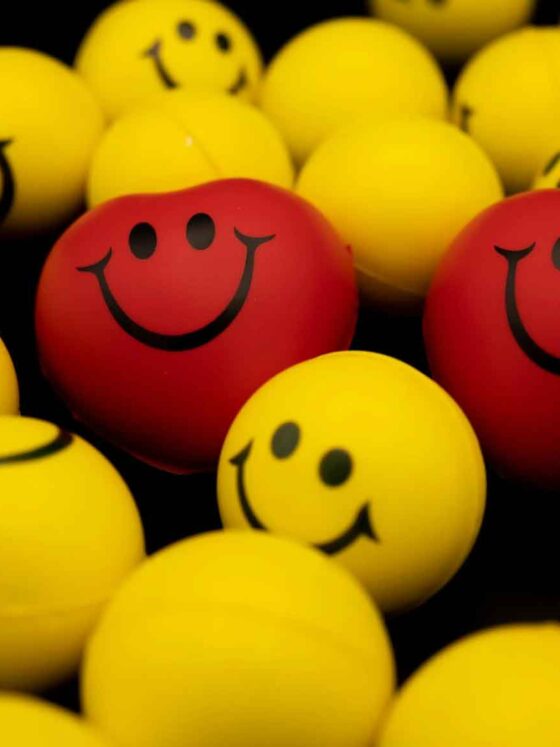You want a solid career and a stable mood. You don’t want to trade one for the other.
Good news: you don’t have to. Anxiety and depression wipe out about 12 billion workdays every year and cost the global economy around $1 trillion in lost productivity.
That number says one thing very clearly: mental health decides output.
Mood Fuels Money
Work success looks easier when you feel steady, sleep well, and don’t carry invisible panic in your chest all day. Employers see this too: poor mental health shows up in the form of burnout, sick days, and high turnover.
Some industries now treat mental health like any other performance metric because stress, anxiety, and untreated depression drag down productivity and profit.
Your environment also plays a role here. The spaces, routines, and aesthetics you live in shape how regulated or chaotic you feel, which then spills directly into your work mood and output, as explained in how the environment shapes aesthetic and lifestyle choices.
So no, “self-care” does not just mean “candles.” It means protecting your earning ability.
Career Fit and Environment
Your job affects your nervous system. Shift work, volatile schedules, or emotionally intense service roles can disrupt circadian rhythm and mood regulation.
If your work pattern wrecks your sleep, your body will fight you. You will feel “unmotivated,” but your biology just wants circadian stability. That matters when you consider new roles. Before you chase salary alone, look at scheduling rules, break culture, commute time, and management style.
When you scan openings and you explore career opportunities in food service, hotels, and tourism, you also want to weigh predictability, safety, and support culture, not just the hourly rate.
Sleep: The Silent Performance Drug
About one in three adults in the U.S. reports not getting enough sleep.
Sleep loss hits mood first. Less sleep means more irritability, faster frustration, worse emotional control, and slower thinking. Chronic short sleep also links to a higher risk of anxiety, depression, high blood pressure, and heart disease.
Treat sleep like payroll. It goes out on schedule, and no one skips it. Set a target of seven hours minimum. Keep your last caffeine hit at least six hours before bed. Keep your phone out of your face in bed. Your temper, focus, and immune system will thank you tomorrow.
Yes, this section sounds like boring parent advice. That’s because it works.
Food, Hydration, and Blood Sugar Stability
Your brain runs on glucose, fat, amino acids, and micronutrients. It does not run on vending machine fumes. When your energy level swings, your mood crashes, and then your work quality follows it off the cliff.
Aim for actual meals during the day, not “coffee until 2 p.m. and then panic pasta.” Build plates with protein (eggs, fish, legumes, tofu), complex carbs (whole grains, vegetables), and some fat (olive oil, nuts). That combo holds blood sugar steady and keeps stress chemistry calmer.
Drink water. Mild dehydration already cuts alertness and mood stability. You feel “tired and annoyed,” and you call it personality. Often it’s fluid.

Movement, But Not Punishment
You don’t need a six-day deadlift program. You just need movement that clears stress hormones and wakes up circulation.
Moderate physical activity improves mood regulation, sleep quality, and cognitive function. Researchers also link regular movement to lower rates of anxiety and depression.
Walk while you take calls. Stretch your back and hips on breaks. Step outside and get daylight in your eyes early in the day. Sunlight exposure anchors your body clock, which improves sleep, which improves mood, which improves performance.
The goal: feel more awake at 14:00 without slamming another energy drink.
Boundaries Protect Mood
High workload and low control over your time increase mental health risk at work. WHO points to discrimination, overload, and job insecurity as clear threats to mental health.
So draw lines.
Say when you’re available and when you’re not. Block off focus time on your calendar like any other meeting. Turn off notifications after hours unless you work in emergency response or literal surgery. You protect your focus today and your employment record long-term.
Your boundary is not rudeness. Your boundary is asset protection.
Humans Need Humans (Annoying, But True)
Strong social ties act like shock absorbers. They help you buffer stress, think clearly, and avoid spiral thinking after a bad moment.
Employers who invest in mental health support often see better retention and fewer sick days, because people stay longer in places where they feel seen instead of drained.
You don’t need 200 friends. You need a few people you trust. That can mean coworkers, a mentor, family, or your “we complain but also root for each other” group chat. This network matters more than you think. Isolation lets stress grow louder than facts.
Schedule time with them. Treat that time like a meeting with your future self.
Bottom Line
Here’s the real frame: your mood is not “personal,” separate from your professional life. Your mood is the infrastructure for your career.
We already see companies calculate the cost of poor mental health in lost workdays, lost productivity, and higher turnover. You can run the same math for yourself. Sleep gives you focus. Food gives you stable energy. Movement clears stress. Boundaries prevent resentment. Human connection keeps your head from lying to you.
This does not create a soft life. It creates a durable one. You don’t chase “perfect balance.” You build a daily setup that lets you earn money without feeling miserable while you do it.
-This post is part of a paid collaboration









